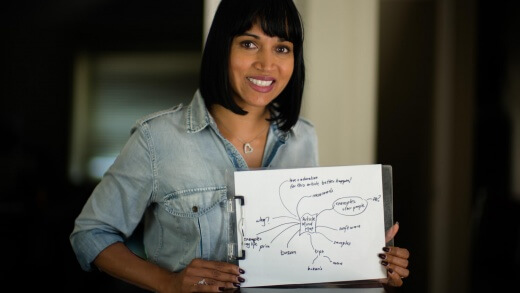September is a time for a rebirth. Even if we don’t have little ones heading off to school, we feel the urge to reset our lives. It’s from all those years spent dusting off backpacks and laying out our favourite clothes for that first day of class.
With this reset, we have an opportunity to fix many things. Run more, get up even earlier, drink more water, get ahead on that work project…it’s a long list.
We are all saints of execution in that first week. But then it slowly starts to unravel – skip the run for a few days, sleep in on some days and dash in late, and procrastinate on that project.
By December, everything has fallen apart. You are ready for the January 1st rebirth.
Perhaps it’s time to reset how we reset.
AND THEN THERE’S KOBE BRYANT
Kobe Bryant, one of basketball’s greatest players, took a different approach to change.
He spent time analyzing the pitfalls in his play and slowly took on each one. He was dedicated to continuous improvement to reach a larger goal. Most ardent basketball fans know this already, but this piece in the New York Times article spells it out: he got better as he aged.
Celebrity chef David Chang employs continuous improvement at Momofuku. He told the Toronto Star in 2014 that his staff gets together after the restaurant closes to review the day, identify missteps and look for ways to fix issues.
Japanese companies have been using this strategy for decades. It’s called Kaizen. The methodology was developed by American consultants, and embraced by companies like Toyota as a way to streamline their business.
FROM TOYOTA TO YOU
The big idea is that big goals can be daunting. But they can be achieved with small changes. This applies to companies who want better products at lower prices coming off the conveyor belt – and it also applies to each of us.
It is hard to make radical changes in our lives.
The changing of the seasons presents us with an opportunity to try something new with our routines like applying the principles of Kaizen to our personal and professional lives.
HOW TO KAIZEN
The first step is to assess where you need to make the changes. Don’t jump on the next bandwagon that swings by, be it the 5 AM club or a group of bulletproof coffee devotees.
Next, figure out where you want to be in that area of your life. Identify what it takes to get you there. Break the solution into little bits. Make a timeline for putting it into practice.
If it’s a habit like a daily run, start with a 5-minute burst every day and keep going for 21 days. Once it’s deeply embedded as a habit, take it up to 15 minutes and dial-it up as the year progresses
If it’s a process in your life that is driving you crazy – like getting out of the house in the morning – walk through it in your mind. Figure out what needs to change. Are you struggling to find your keys? Is there nothing to eat for breakfast? Do you have troubles getting dressed? Cue the utterly shameless plug for the piece I wrote on clothes and closets: Dealing with Decision Fatigue.
Tell yourself that you are going to spend one week on each problem. During that week, think up a solution for that one little issue. Do it for a few days and then review to see if it has made a difference to the overall process. Has nailing up that stylish Umbra key-holder cut down your morning exit by five minutes?
To sum it up – assess, identify, solve, break it down, take on each tiny change, review and start again.
BUT I HAVE MY FEARS
I have been blogging about change and effectiveness for Tamil Culture over the last few months, so this next bit will throw you off. I felt it was important to address it in a piece that is about changing how you change your life.
I worry that the drive to constantly improve ourselves can leave us with the sense that there are gaping holes in our capabilities.
I worry that a sustained focus on personal effectiveness impedes the out-of-the-box thinking that leads to innovation.
Even companies that employed Kaizen are questioning if it gets in the way of disruptive ideas. I don’t have an answer for this, I raise it as a note of caution. Be kind to yourself, fail often, get up and keep going.
In the meantime, I’m starting my Kaizen exercise by joining author Laura Vanderkam’s 168 hours time tracking challenge. It’s online and runs from Sep 12 to Sep 18.
See you on the other side.

 Manjula Selvarajah
Manjula Selvarajah









